 W
WThe Templeton Prize is an annual award granted to a living person, in the estimation of the judges, "whose exemplary achievements advance Sir John Templeton's philanthropic vision: harnessing the power of the sciences to explore the deepest questions of the universe and humankind’s place and purpose within it." It was established, funded and administered by John Templeton starting in 1972. It is now co-funded by the Templeton philanthropies, and administered by the John Templeton Foundation.
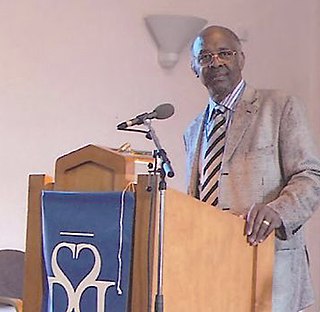 W
WWilliam Barclay Allen is an American political scientist. He has been Professor of Political Philosophy and dean of James Madison College at Michigan State University in East Lansing, Michigan. He was a member of the National Council on the Humanities 1984–87 and chairman of the United States Commission on Civil Rights from 1988 to 1989.
 W
WMurlidhar Devidas Amte, commonly known as Baba Amte, was an Indian social worker and social activist known particularly for his work for the rehabilitation and empowerment of people suffering from leprosy. He has received numerous awards and prizes including the Padma Vibhushan, the Dr. Ambedkar International Award, the Gandhi Peace Prize, the Ramon Magsaysay Award, the Templeton Prize and the Jamnalal Bajaj Award. He is also known as the modern Gandhi of India.
 W
WPandurang Shastri Athavale, also known as Dadaji, which literally translates as "elder brother" in Marathi, was an Indian activist, philosopher, spiritual leader, social revolutionary, and religion reformist, who founded the Swadhyaya Parivar in 1954. Swadhyaya is a self-study process based on the Bhagavad Gita which has spread across nearly 100,000 villages in India, with five million adherents. Noted for his discourses on the Bhagavad Gita, the Vedas and the Upanishads, Dadaji is also known for his selfless work and brilliant knowledge in scriptures.
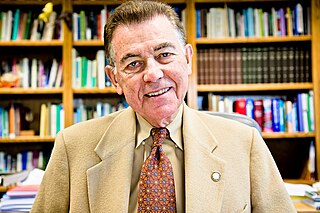 W
WFrancisco José Ayala Pereda is a Spanish-American evolutionary biologist and philosopher who was a longtime faculty member at the University of California, Irvine and University of California, Davis. He is a former Dominican priest, ordained in 1960, but left the priesthood that same year. After graduating from the University of Salamanca, he moved to the United States in 1961 to study for a PhD at Columbia University. There, he studied for his doctorate under Theodosius Dobzhansky, graduating in 1964. He became a US citizen in 1971.
 W
WJohn David Barrow was an English cosmologist, theoretical physicist, and mathematician. He served as Gresham Professor of Geometry at Gresham College from 2008 to 2011. Barrow was also a writer of popular science and an amateur playwright.
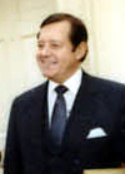 W
WWilliam R. Bright was an American evangelist. In 1951 at the University of California, Los Angeles he founded Campus Crusade for Christ as a ministry for university students. In 1952 he wrote The Four Spiritual Laws. In 1979 he produced the film Jesus.
 W
WCharles Wendell Colson, generally referred to as Chuck Colson, was an American attorney and political advisor who served as Special Counsel to President Richard Nixon from 1969 to 1970. Once known as President Nixon's "hatchet man", Colson gained notoriety at the height of the Watergate scandal, for being named as one of the Watergate Seven, and pleaded guilty to obstruction of justice for attempting to defame Pentagon Papers defendant Daniel Ellsberg. In 1974 he served seven months in the federal Maxwell Prison in Alabama, as the first member of the Nixon administration to be incarcerated for Watergate-related charges.
 W
WThe 14th Dalai Lama, was born in the Wood-Pig Year, 5th month, 5th day of the Tibetan Calendar, or 6 July 1935. Known as Gyalwa Rinpoche to the Tibetan people, he is the current Dalai Lama, the highest spiritual leader of Tibet and the retired political leader of Tibet. He is considered a living Bodhisattva; specifically, an emanation of Avalokiteśvara. He is also the leader of the Gelug school, the newest school of Tibetan Buddhism, formally headed by the Ganden Tripa. The central government of Tibet, the Ganden Phodrang, invested the Dalai Lama with temporal duties until his exile in 1959. On April 29, 1959, the Dalai Lama established the independent Tibetan government in exile, the Central Tibetan Administration, in the north Indian hill station of Mussoorie, which then moved in May 1960 to Dharamsala, where he resides. He retired as political head in 2011 to make way for a democratic goverment.
 W
WPaul Charles William Davies is an English physicist, writer and broadcaster, a professor at Arizona State University as well as the Director of BEYOND: Center for Fundamental Concepts in Science. He is affiliated with the Institute for Quantum Studies at Chapman University in California. He has held previous academic appointments at the University of Cambridge, University College London, University of Newcastle upon Tyne, University of Adelaide and Macquarie University. His research interests are in the fields of cosmology, quantum field theory, and astrobiology. He proposed that a one-way trip to Mars could be a viable option.
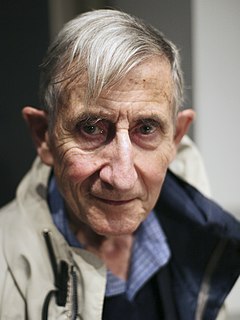 W
WFreeman John Dyson was a British-American theoretical and mathematical physicist, mathematician, and statistician known for his works in quantum field theory, astrophysics, random matrices, mathematical formulation of quantum mechanics, condensed matter physics, nuclear physics, and engineering. He was Professor Emeritus in the Institute for Advanced Study in Princeton, a member of the Board of Visitors of Ralston College, and a member of the Board of Sponsors of the Bulletin of the Atomic Scientists.
 W
WGeorge Francis Rayner Ellis, FRS, Hon. FRSSAf, is the emeritus distinguished professor of complex systems in the Department of Mathematics and Applied Mathematics at the University of Cape Town in South Africa. He co-authored The Large Scale Structure of Space-Time with University of Cambridge physicist Stephen Hawking, published in 1973, and is considered one of the world's leading theorists in cosmology. From 1989 to 1992 he served as president of the International Society on General Relativity and Gravitation. He is a past president of the International Society for Science and Religion. He is an A-rated researcher with the NRF.
 W
WWilliam Franklin Graham Jr. was an American evangelist, a prominent evangelical Christian figure, and an ordained Southern Baptist minister who became well-known internationally in the late 1940s. One of his biographers has placed him "among the most influential Christian leaders" of the 20th century.
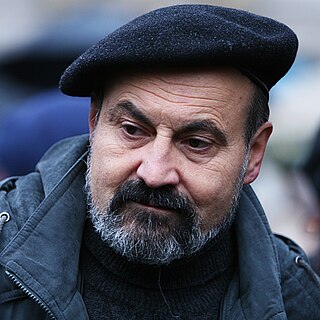 W
WTomáš Halík is a Czech Roman Catholic priest, philosopher, and theologian. He is a professor of Sociology at the Charles University in Prague, pastor of the Academic Parish by St. Salvator Church in Prague, and president of the Czech Christian Academy. Since 1989, he has lectured at a number of universities and international scientific conferences in Europe, the United States, Asia, Australia, Canada, and Southern Africa. He was also a visiting professor at Oxford University, Cambridge University and Harvard University.
 W
WSir Alister Clavering Hardy was an English marine biologist, an expert on marine ecosystems spanning organisms from zooplankton to whales.
 W
WMichał Kazimierz Heller is a Polish professor of philosophy at the Pontifical University of John Paul II in Kraków, Poland, and an adjunct member of the Vatican Observatory staff. He also serves as a lecturer in the philosophy of science and logic at the Theological Institute in Tarnów. A Roman Catholic priest belonging to the diocese of Tarnów, Heller was ordained in 1959. In 2008 he received the Templeton Prize for his works in the field of philosophy.
 W
WStanley L. Jaki was a Hungarian-born priest of the Benedictine order. From 1975 to his death, he was Distinguished University Professor at Seton Hall University, in South Orange, New Jersey. He held doctorates in theology and in physics and was a leading contributor to the philosophy of science and the history of science, particularly to their relationship to Christianity. In 2018, Jaki was named one of five Catholic scientists "that shaped our understanding of the world" by Aleteia; the other four are: Copernicus, Gregor Mendel, Giuseppe Mercalli and Georges Lemaitre.
 W
WImmanuel Jakobovits, Baron Jakobovits was the Chief Rabbi of the United Hebrew Congregations of the Commonwealth from 1967 to 1991. Prior to this, he had served as Chief Rabbi of Ireland and as rabbi of the Fifth Avenue Synagogue in New York City. In addition to his official duties he was regarded as an authority in medical ethics from a Jewish standpoint. He was knighted in 1981 and became the first Chief Rabbi to enter the House of Lords in 1988 as Baron Jakobovits.
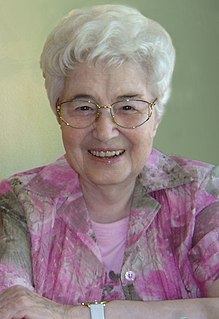 W
WChiara Lubich, was an Italian teacher and author who founded the Focolare Movement, which aims to bring unity among people and promote universal fraternity.
 W
WGeorge Fielden MacLeod, Baron MacLeod of Fuinary, was a Scottish soldier and clergyman; he was one of the best known, most influential and unconventional Church of Scotland ministers of the 20th century. He was the founder of the Iona Community on the island of Iona.
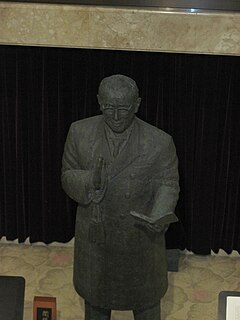 W
WNikkyō Niwano KCSG was one of the founders and the first president of the Buddhist organization Risshō Kōsei Kai.
 W
WMichael John Novak Jr. (1933–2017) was an American Roman Catholic philosopher, journalist, novelist, and diplomat. The author of more than forty books on the philosophy and theology of culture, Novak is most widely known for his book The Spirit of Democratic Capitalism (1982). In 1993 Novak was honored with an honorary doctorate at Universidad Francisco Marroquín due to his commitment to the idea of liberty. In 1994 he was awarded the Templeton Prize for Progress in Religion, which included a million-dollar purse awarded at Buckingham Palace. He wrote books and articles focused on capitalism, religion, and the politics of democratization.
 W
WArthur Robert Peacocke (1924–2006) was an English Anglican theologian and biochemist.
 W
WAlvin Carl Plantinga is an American analytic philosopher who works primarily in the fields of philosophy of religion, epistemology, and logic.
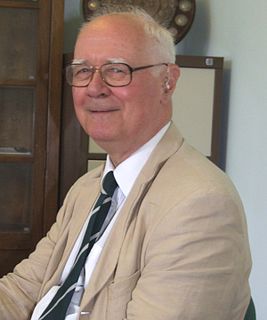 W
WJohn Charlton Polkinghorne was an English theoretical physicist, theologian, and Anglican priest. A prominent and leading voice explaining the relationship between science and religion, he was Professor of Mathematical Physics at the University of Cambridge from 1968 to 1979, when he resigned his chair to study for the priesthood, becoming an ordained Anglican priest in 1982. He served as the president of Queens' College, Cambridge, from 1988 until 1996.
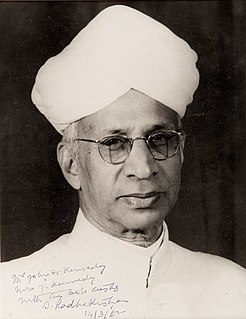 W
WSarvepalli Radhakrishnan pronunciation (help·info) was an Indian academician, professor, politician, philosopher, and statesman who served as the first Vice President of India (1952–1962) and the second President of India (1962–1967).
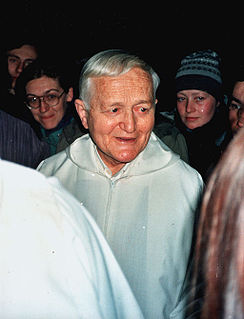 W
WRoger Schütz (1915–2005), popularly known as Brother Roger, was a Swiss Christian leader and monastic brother. In 1940 Schütz founded the Taizé Community, an ecumenical monastic community in Burgundy, France, serving as its first prior until his murder in 2005. Towards the end of his life, the Taizé Community was attracting international attention, welcoming thousands of young pilgrims every week, which it has continued to do after his death.
 W
WHolmes Rolston III is a philosopher who is University Distinguished Professor of Philosophy at Colorado State University. He is best known for his contributions to environmental ethics and the relationship between science and religion. Among other honors, Rolston won the 2003 Templeton Prize, awarded by Prince Philip in Buckingham Palace. He gave the Gifford Lectures, University of Edinburgh, 1997–1998. He also serves on the Advisory Council of METI.
 W
WJonathan Henry Sacks, Baron Sacks was a British Orthodox rabbi, philosopher, theologian, author, and public figure.
 W
WDame Cicely Mary Strode Saunders was an English nurse, social worker, physician and writer. She is noted for her work in terminal care research and her role in the birth of the hospice movement, emphasising the importance of palliative care in modern medicine.
 W
WAleksandr Isayevich Solzhenitsyn was a Russian novelist, philosopher, historian, short story writer and political prisoner. One of the most famous Soviet dissidents, Solzhenitsyn was an outspoken critic of Communism and helped to raise global awareness of Soviet war crimes, human rights abuses, and the Gulag concentration camp system.
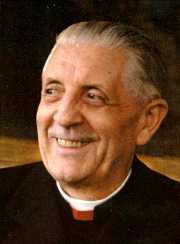 W
WLeo Jozef Suenens was a Belgian prelate of the Roman Catholic Church. He served as Archbishop of Mechelen-Brussel from 1961 to 1979, and was elevated to the cardinalate in 1962.
 W
WCharles Margrave Taylor is a Canadian philosopher from Montreal, Quebec, and professor emeritus at McGill University best known for his contributions to political philosophy, the philosophy of social science, the history of philosophy, and intellectual history. His work has earned him the Kyoto Prize, the Templeton Prize, the Berggruen Prize for Philosophy, and the John W. Kluge Prize.
 W
WMother Mary Teresa Bojaxhiu, honoured in the Catholic Church as Saint Teresa of Calcutta, was an Albanian-Indian Roman Catholic nun and missionary. She was born in Skopje, then part of the Kosovo Vilayet of the Ottoman Empire. After living in Skopje for eighteen years, she moved to Ireland and then to India, where she lived for most of her life.
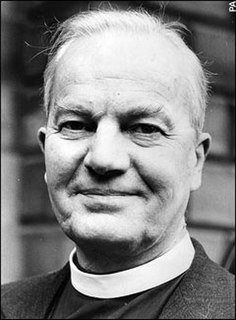 W
WThomas Forsyth Torrance, commonly referred to as T. F. Torrance, was a Scottish Protestant theologian and minister. Torrance served for 27 years as professor of Christian dogmatics at New College, in the University of Edinburgh. He is best known for his pioneering work in the study of science and theology, but he is equally respected for his work in systematic theology. While he wrote many books and articles advancing his own study of theology, he also edited the translation of several hundred theological writings into English from other languages, including the English translation of the thirteen-volume, six-million-word Church Dogmatics of Swiss theologian Karl Barth, as well as John Calvin's New Testament Commentaries. He was a member of the famed Torrance family of theologians.
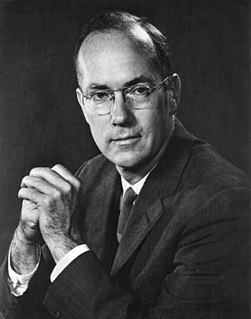 W
WCharles Hard Townes was an American physicist. Townes worked on the theory and application of the maser, for which he obtained the fundamental patent, and other work in quantum electronics associated with both maser and laser devices. He shared the 1964 Nobel Prize in Physics with Nikolay Basov and Alexander Prokhorov. Townes was an adviser to the United States Government, meeting every US President from Harry Truman (1945) to Bill Clinton (1999).
 W
WDesmond Mpilo Tutu is a South African Anglican cleric and theologian, known for his work as an anti-apartheid and human rights activist. He was the Bishop of Johannesburg from 1985 to 1986 and then the Archbishop of Cape Town from 1986 to 1996, in both cases being the first black African to hold the position. Theologically, he sought to fuse ideas from black theology with African theology.
 W
WCarl Friedrich Freiherr von Weizsäcker was a German physicist and philosopher. He was the longest-living member of the team which performed nuclear research in Germany during the Second World War, under Werner Heisenberg's leadership. There is ongoing debate as to whether or not he and the other members of the team actively and willingly pursued the development of a nuclear bomb for Germany during this time.